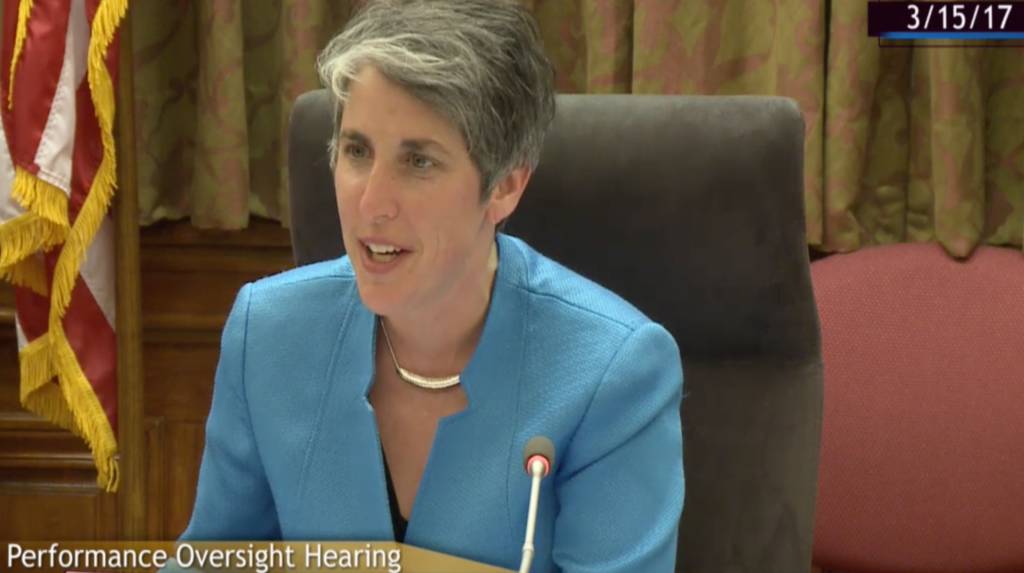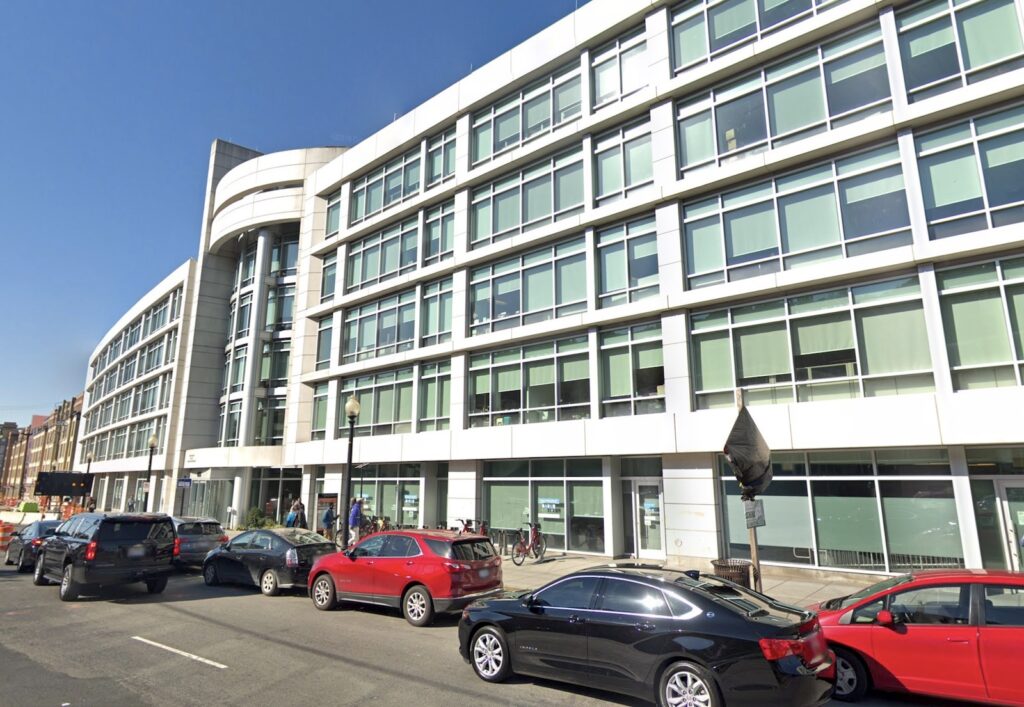D.C.’s Committee on Labor and Workforce Development held a performance oversight hearing on March 15 where public and government witnesses testified on the work of D.C.’s Deputy Mayor for Greater Economic Opportunity, the Workforce Investment Council (WIC) and the Department of Employment Services (DOES). Much of the dialogue centered around the District’s implementation of the Workforce Investment and Opportunity Act (WIOA), a 2014 federal law that aims to help job seekers and employers find each other efficiently.
The act calls for better access to employment, education, training and support services to help job seekers succeed in the labor market. It also intends to match employers with skilled workers.
WIOA went into effect in July 2015, and several witnesses mentioned successes and areas of improvement they observed since D.C. enacted policies outlined by the act. The WIC serves as D.C.’s workforce development board, tasked with advising the mayor, city council and the District government on the public workforce system.
This law serves as the first legislative reform of the public workforce system in 15 years. Reforms include requiring states to improve the American Job Center (AJC) system and provide access to high quality training. Every state must submit a four-year strategy for implementing WIOA.
“We are making significant strides in developing the infrastructure necessary to create a comprehensive, integrated, world-class workforce system that works for the residents of the District of Columbia,” Deputy Mayor Courtney Snowden said in her March 15 testimony.
The District’s WIOA 2016-2020 Unified State Plan addresses the city’s employment challenges by focusing on five key areas: system alignment (coordination of D.C. government agencies to provide services to job seekers), access to services for all D.C. residents, business alignment (providing services consistent with needs of business sectors), performance (standardized and evidence-based evaluation) and youth services (support for postsecondary success, including education, training and competitive employment). Implementation will take place in phases over four years.
“In a city as prosperous as ours, everyone deserves a fair shot,” Mayor Bowser wrote in her introductory letter to the District plan. “That is why my Administration has fought to ensure that all of our residents – whether they have been here for five generations or five minutes – have a pathway to the middle class.”
D.C.’s plan includes core workforce and education programs as defined under the law. It highlights workforce programs at the Department of Human Services and accentuates the District’s partnership with the University of the District of Columbia Community College.
So far, headway on the plan has included approval of the state plan, implementation of a One-Stop Operator (OSO) Procurement Plan and assembly of a full 34-seat WIOA-compliant WIC board, according to dcworks.dc.gov. WIOA working group meetings have been held and the Eligible Training Provider List (ETPL) was streamlined.
OSOs provide employment services and connect patrons to work-related education and training, in accordance with WIOA. The act stresses strategies and partnerships needed for OSOs to function. One-stop services are supposed to be offered at D.C.’s AJCs, but it is not clear that barriers to employment have been removed.
Greg Lomax, a public witness who testified March 15, recalled being rejected after submitting numerous applications in fields including office work, fitness training and Metro transit services. The AJCs did not follow up after Lomax submitted his resume, he said.
“Most times when I went and tried to obtain employment,” Lomax said in his testimony, “I was always told you need a certain amount of experience or certain amount of hours of training to qualify for the job.”
The ETPL is a list of training providers and training programs permitted to receive WIOA funding through Individual Training Accounts. AJC workforce specialists aid customers in selecting programs that will aid them in obtaining a job, according to the WIC.
Ten out of the 12 listed D.C. providers are currently on probation for inadequate performance, D.C. Council Committee on Labor and Workforce Development Chairperson Elissa Silverman said at the hearing.
The D.C. Alliance of Youth Advocates, represented by Policy Analyst Amy Dudas, commended DOES for diversifying its services available under WIOA for special populations of youth, including those with disabilities. Dudas suggested training agency staff members to ensure maximized accessibility and proper handling of youth disclosure considerations.
“Additionally, the WIC should be leveraged in its oversight and coordination role, to ensure this more diverse youth portfolio is streamlined … across federal and local funding streams in the coming year,” Dudas said in her March 15 testimony.
Ed Lazere, executive director of the D.C. Fiscal Policy Institute, suggested at the hearing that the District government create a specific implementation timeline for its key WIOA goals “to turn the broad goals of that plan into action as a matter of transparency and accountability, and we hope that the community stakeholders will be included in that process.”
A March report titled “Maximizing WIOA’s Potential: A Regional Analysis of the State Plans of Maryland, Virginia, and Washington, D.C.” echoed this need for an implementation plan. The report was authored by the Commonwealth Institute for Fiscal Analysis, D.C. Appleseed, the D.C. Fiscal Policy Institute, the Job Opportunities Task Force and the Maryland Center on Economic Policy.
Other suggestions from the report include lessening gaps in the D.C. career pathways strategy, outlining the roles of sector partnerships and specifying how the District should align WIOA funding with the WIC’s five high-demand sectors: business and information technology, construction, healthcare, hospitality, and security and law.
In her testimony, Judy Berman, deputy director of D.C. Appleseed, a nonprofit dedicated to addressing public policy concerns, suggested WIOA-related legislation be enacted. Legislation would formally implement the act and empower WIC to carry out its new functions under WIOA. Berman also called for the creation of a process for reports to the city council and mayor’s office regarding the District’s performance under WIOA.
When questioned by Silverman on whether the council should pass such legislation, DOES Acting Director Odie Donald advised against it.
“We are both a state and local area, so part of our oversight comes directly from the federal government,” Donald said.
WIOA legislation is more beneficial in larger states with multiple local areas that each have individual ETPLs, Donald said, adding that legislation can “almost cripple some of the things we put in place.”
Many public witnesses called for greater transparency in the WIOA implementation process, and the WIC’s Interim Executive Director Diane Pabich noted that Workforce Implementation Guidance Letters (WIGL) will function as a source of information prior to the WIC’s policy guide’s becoming effective.
Nine WIGLs have been posted online since Nov. 10, 2016.
Community advocate Eric Sheptock said DOES made significant progress concerning homeless employment and WIOA implementation under its former director, Deborah Carroll.
“I hope that all that work isn’t trashed,” Sheptock said.
Progress has been made in the District’s WIOA implementation efforts, and further work must be completed to address the goals outlined in the unified state plan.
“While many hurdles remain, we are encouraged that the District is committed to ensuring that the workforce system will serve all residents, including the hardest to serve, for what is a long and multi-year process,” said Evette Banfield of the Coalition for Nonprofit Housing and Economic Development.








